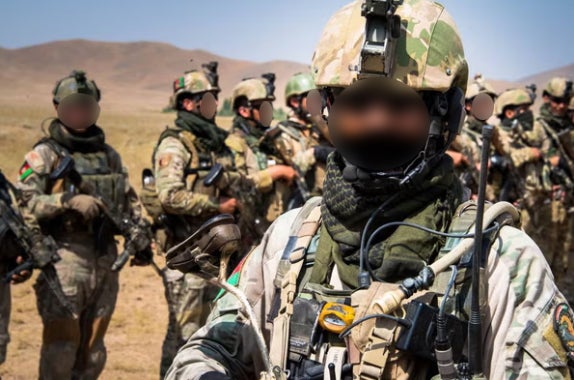Resettlement schemes for Afghans to come to the UK will be merged into one and will eventually be closed down, the government has announced.
Defence secretary John Healey has said that the new single pathway will “ensure value for money for the taxpayer”. In a statement to MPs, Mr Healey added that providing safety to these Afghans “cannot be an endless process”, adding: “The government intends to reach a position where the UK Afghan resettlement schemes can be closed”.
No time frame was given for when the schemes will be closed. Refugee charity Safe Passage said they “urgently” needed more detail from government “so Afghans are not left in danger.”
At the moment there are two main pathways for Afghans to be brought to safety in the UK, one operated by the Ministry of Defence and one by the Home Office and Foreign Office.
The MoD’s Afghan Relocations and Assistance Police (Arap) scheme is for those Afghans who served alongside British forces and has brought 3,662 people to the UK so far this year.
The Home Office scheme, called Afghan Citizens Resettlement Scheme (ACRS), is for those Afghans deemed vulnerable or at risk - with 1,917 people coming to the UK so far this year.
It is understood that the applications and eligibility for these schemes will remain the same but that the process to resettle Afghans is being merged into one.
Overall the numbers of people accepted through Afghan resettlement schemes has been rising over the past year - with 1,083 grants made in the year up to September 2023, compared with 9,048 grants in the year up to September 2024. This represents a 735 per cent increase.

Mr Healey has said that those who come to the UK will, from Spring, be able to spend a maximum of nine months in so-called transitional accommodation such as rooms on army bases and hotels, before having to find their own place to stay.
He paid tribute to the work of Afghan special forces units, known as The Triples, who fought alongside British troops and were paid salaries by the UK government. A review was announced into their relocation applications after a joint investigation by The Independent and Lighthouse Reports revealed that many were being wrongly rejected for sanctuary.
Mr Healey confirmed that the MoD is expecting an overturn rate of around 25 per cent of these rejected applications.
In a statement on Wednesday, he said: “Whilst we recognise that resettlement is a complicated endeavour, we believe there is room for improvement in how we deliver for eligible Afghans and the communities in which they are being resettled, and ensure value for money for the taxpayer.
“At present, arrivals through different schemes are subject to differing and complex funding and support offers. This is why we are fixing the foundations of a complicated system and drawing together a single pipeline for Afghan resettlement, to deliver greater efficiency and better outcomes across government.”
The statement continued: “Over the past 12 months, we have welcomed around 90 eligible families each month and we expect this pace to continue. This cannot, however, be an endless process and ultimately, the government intends to reach a position where the UK Afghan resettlement schemes can be closed. We will update the House on this accordingly.”
Wanda Wyporska, chief executive at refugee charity Safe Passage International, said: “We’re concerned that the government is thinking about closing the safe pathways for Afghans, given there are no other working safe routes that can bring those fleeing the Taliban to safety here.
“We urgently need more detail on this so Afghans are not left in danger. We know there are many Afghans living in terror and under the threat of increasingly repressive Taliban rules, such as those oppressing women and girls.
“Afghans are already the top nationality crossing the Channel, so we fear without this safe route we will only see more people turning to smugglers to reach protection here.”







